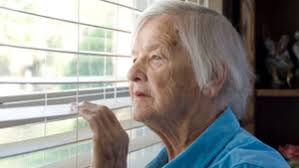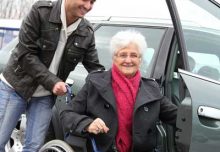 Wearing a face mask is the new front line of defense against the spread of the war on COVID-19, but it does little to protect against the other public health crisis that is hitting people around the globe. Scientists surveyed more than 5400 adults this past June and found that nearly 41% of respondents reported one of more of anxiety, depression, trauma, stressor related disorder (TSRD) or increased substance abuse. You may have thought the spread of COVID-19 was rampant, but two of every five adults are way stressed out.
Wearing a face mask is the new front line of defense against the spread of the war on COVID-19, but it does little to protect against the other public health crisis that is hitting people around the globe. Scientists surveyed more than 5400 adults this past June and found that nearly 41% of respondents reported one of more of anxiety, depression, trauma, stressor related disorder (TSRD) or increased substance abuse. You may have thought the spread of COVID-19 was rampant, but two of every five adults are way stressed out.
To be honest, it is not just fear of COVID that is driving this spike in emotional trauma, although having our bodies on high alert full-time is not healthy. People are facing losses and/or the stress of a loved one or friend who has contracted the virus, and everyone who is following the guidelines is also facing a whole lot of alone time and a world that is radically different that what anyone would have predicted in the early days of 2020. And if you have an older loved one, chances are that all that you’re facing is ramped up even more for those who may feel even more isolated than before or just plain trapped in what was supposed to be “carefree senior living.” One of my acquaintances in a very upscale senior living community has taken to calling their campus a “death farm.”
Here are some tips from health care professionals about how to hit the reset button on your mental health during this unprecedented time of COVID-19:
- Know where you would go if you needed treatment for a COVID-19 infection ahead of any need for care. Preparation is a great anxiety-reducer.
- Take a break from the news; this does not mean just the COVID-19 news…all the national news can be very stressful in the aftermath of our national election.
- Eat regularly…just like before COVID, and eat a balanced diet; comfort food may make you feel, well, comfortable, but eating high fat or carbohydrate foods can make you feel worse and certainly take a toll on your body.
- Exercise regularly, and not just walking, although walking may be one of your single best ways to boost your endorphins and burn calories; recall the post from a number of weeks ago about introducing new exercises to stay nimble.
- Stick to a regular sleep regimen. Eight hours of sleep daily and bed time at the same times can be an important reset for your mental and physical health.
- Avoid excessive alcohol or substance use; keep a log if you need to actually be critical of your own patterns.
- Take timeouts…maybe more of them than you did before COVID, because remember that you are living in a more stressful world these days.
- Connect with friends at distance or on ZOOM, stay connected to clubs or your faith family via ZOOM or telephone.
- Take solace from the milestones like two vaccines showing promise and more to follow; we will get through this; “hope” actually is a plan in this case.
Charlotte Bishop is an Aging Life Care Advisor, Geriatric Care Manager and founder of Creative Care Management, certified professionals who are geriatric advocates, resources, counselors and friends to older adults and their families in metropolitan Chicago. She also is the co-author of How Do I Know You? A Caregiver’s Lifesaver for Dealing with Dementia.







